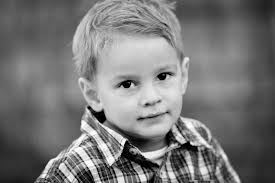
SULKY BENNIE.
"THE bell has just rung; Bennie, let us hurry to school, or we shall be late," said little Angie to her brother about two years younger than herself.
"I don't want to go to school this afternoon. I want to play," fretfully replied Bennie. They were both fond of play, and were just enjoying a good romp in the yard when the school-bell called them. Angie ran away to school, while Bennie sulkily loitered by the way. He was usually a bright, good-natured boy, and had learned to read quite well, though he had never been to school much; but at this time, he was out of humor with everybody. School had begun, and a class was reading when he got there. This made him feel still more vexed; so he sat on the steps until the teacher invited him in, it being time for him to read. He did not try to read very well; and when he was corrected for not sounding final s on the word beast, he would not repeat the word, though he knew how very well. He would repeat similar words, but that one he would make no effort at pronouncing. The teacher told him he might sit in the corner, and think over the causes of his perplexity, and perhaps he would feel different about it after awhile.
Recess came, but found him no more inclined to do as asked than before; so he must go back to his corner, and lose the privilege of going out in the beautiful sunshine, and of mingling in the pleasant plays that others were enjoying outside. This he felt very bad about, but was determined not to yield his will for anything. Finally school closed, and when others, cheerful and happy, were preparing to go to their homes, poor Bennie still sat in the corner, crying. The word had grown harder and harder for him, till he was sure he could not and would not say it. The teacher told him he might go home, and that she would see him about it in the morning. He ran home, and as was his custom, told his mother all about what had happened, and how unhappy he felt. She talked with him; he would own that it was naughty for him to do as he did, but would say, "Mamma, I can't say it."
Now his mother was a woman who prayed, and had taught her children to pray. She prayed with him, and then asked him if he didn't want to ask the Lord to help him to ‘do right.' He prayed; and though only about five years old, he felt that the Lord heard his little prayer. He was happy again, and could say beasts over and over again. He could not wait till morning before telling his teacher that he was sorry he had given her so much trouble; but went to her that night and asked her to forgive him, and then repeated the word which had made him so much trouble that afternoon. This was a lesson, which, I trust, was so impressed upon his young mind by the Great Teacher that it will prove to be to him of lasting benefit.
NETTIE T. HOLT.